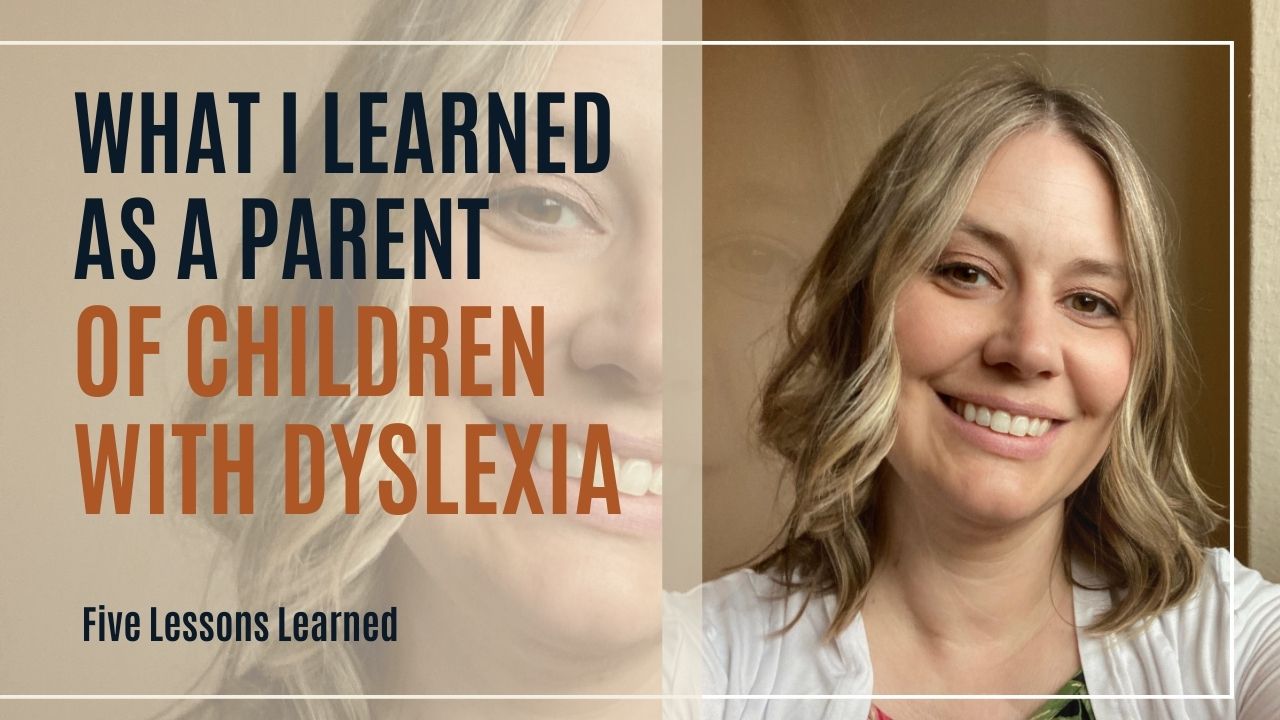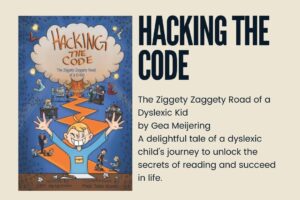
What I Learned As a Parent of Children with Dyslexia
- Posted by Apricot Tree Academy
- Categories Dyslexia, Neurodiversity
- Date March 19, 2024

As a parent of children with dyslexia, I have learned many things. Here are some things I’ve learned.
My dyslexic children are brilliant.
Dyslexia runs in families.
Not all schools know how to help dyslexic children.
Often, parents need to advocate for their dyslexic children.
Explicit, systematic phonics instructions, like Orton Gillingham, can help dyslexic children learn how to read.
Discovering the Problem
I was an elementary school teacher for 6 years before staying home to raise my own children. When my oldest started kindergarten, I noticed she was struggling to learn to read and I discussed my worries with her teacher. She noticed the difficulties and couldn’t understand why she was having trouble learning to read since she was so bright. So, I gathered my teaching resources and began to work with my daughter at home. We spent the entire summer working on sight words and fluency, but I still wasn’t seeing much progress.
Searching for Answers
That is when I started researching. I found everything I could about children who struggled with reading and that’s when I started learning about dyslexia. I was not completely unaware of it, but none of my teacher education courses had taught me to recognize it, let alone teach a child with dyslexia. It was always left to the special education teacher or reading specialist. What I knew of dyslexia, I learned from my mother. My brother has dyslexia and when I called my mom to tell her about my daughter’s struggles, she recognized all the signs. With this new information, I poured over books from the library, and articles online, and talked with everyone about dyslexia.
Exploring Dyslexia
Although she had not been tested, I was pretty sure I was a parent of a child with dyslexia. She showed all the signs including delayed speech, mixing up sounds and syllables in words, stuttering, trouble memorizing the alphabet, inability to create words that rhyme, and having a close relative with dyslexia. I decided to find a dyslexia tutor to help my daughter. Unfortunately, the nearest one was an hour and a half away. With three other young kids at home, this would be impossible. So, I went back to school. That summer, I started studying with the Dyslexia Training Institute to learn how to tutor my own daughter.
Looking for Help from the School
I had just begun my coursework when my daughter began first grade, but I was learning a lot about dyslexia and knew the school should be providing resources to help her. Prepared with new information, I requested that my daughter be tested via email to the principal. A meeting was set to discuss whether the school would move forward with testing. I was well prepared for the meeting. I had documented all of my concerns and the signs of dyslexia I noticed in my daughter as well as the interventions during the summer and I provided a copy of this for every member of the “team.” When entering the meeting, I was sure we would move forward with testing, and the “team” would help me advocate for my daughter’s learning.
Struggling with School Systems
Unfortunately, I left that meeting in tears. The district psychologist, the person in charge of testing at that elementary school, was not my daughter’s advocate. She insisted that because she was not 2 grade levels below in reading and above many of her peers in language, there was no need to test. I remember thinking, how can anyone be 2 grade levels behind in 1st grade and why would we wait until any child is that far behind? I also knew that about 50% of the population in that school came from non-English speaking homes. So, comparing them to my daughter was an unfair assessment of her language learning. At one point, after expressing my worry that she had dyslexia, the psychologist looked at me and said, “Dyslexia is not a real thing.”
Pushing for School Testing
Several days later, I got a letter in the mail from the psychologist denying my request for testing. Most parents probably give up at this point, but I was upset and because I had been studying with the Dyslexia Training Institute, I knew my daughter’s rights to testing. My next email was not as kind. I reminded the psychologist that the group was not unanimous on testing. Three members wanted her to be tested, two were still unsure and only two did not want her to be tested. Then, I cited the Individuals with Disabilities Act and reminded the psychologist that the district was required to find children with potential disabilities and evaluate them. Finally, I sent the email to everyone on the “team” and the District Special Services Director, the psychologist’s boss.
Home Tutoring
After the email made the rounds, my daughter was immediately granted testing. However, the psychologist was the person administering the tests and I have little faith in her testing practices to this day. She scored very high on her IQ test and the psychologist concluded that my daughter is “a very bright girl with tremendous potential for learning. Based on the findings through this assessment, we predict she will be able to do whatever she sets her mind to accomplish in life.” My daughter was denied help from the school based on the testing. Fortunately, I had begun working with her at home using the Orton Gillingham Method I was learning in my classes. She was beginning to grow in her reading skills and I was becoming more confident that I could help her. Then our family moved.
Moving to a New School
This was a good move. My husband had a better job and my kids would be attending the district I had taught at early in my career. I had such a great experience teaching in the district, so I knew they would work with me to help my daughter at school. Again, my expectations were unmet. I asked for testing immediately and they wanted to wait for her to adjust to the new classroom. Then they didn’t want to start testing at the end of the year. And then, it was a new school year and they wanted to allow her time to adjust to 2nd grade. I also learned that they would not test for dyslexia, just a “specific learning disability.”
Seeking Testing Outside of the School
At one of her check-ups, I talked with her pediatrician about my concerns and she suggested I get outside testing for an official diagnosis. I searched around and found testing to be very expensive, but I found a provider who would take our health insurance and scheduled an appointment. I had to drive an hour in traffic for this test, but I knew it would be perfect. Again, I was disappointed. She did provide a comprehensive analysis and determined my daughter had a learning disability, but would not use the term dyslexic. It was almost as if dyslexia was a forbidden word in the state of Washington, but I knew I was a parent of a child with dyslexia.
School Help and Success
Anyway, I was able to take her medical diagnosis to my daughter’s school and she immediately qualified for help. They put her in a program with specific phonics instruction and with my home tutoring she was able to learn to read. She also took an interest in writing in second grade which helped her with her reading skills. To this day, she is an avid reader and loves creating stories. She still hates spelling and has learned to use spell-check tools to accommodate for this weakness. She is currently in 10th grade and an honor roll student. We recently moved to Texas, where they do tests for dyslexia in the schools and she now has an official diagnosis. It took three school districts, one outside specialist, and 8 years to determine that I am a parent of a child with dyslexia.
Dyslexia Runs in Families
I wasn’t surprised. My brother and other family members have dyslexia and we discovered that dyslexia also runs in my husband’s family. Dyslexia runs in families. Statistics show that 50% of my children could have dyslexia and I have 4 children. So, I watched all of my children closely. My youngest, my only son, was born just before my oldest started Kindergarten. After my experiences with my daughter, I was hyper-aware of the signs of dyslexia in my children. When he started Kindergarten and struggled to learn his letters, had trouble rhyming words, and wasn’t beginning to read with his peers, I knew we needed to start by getting the school involved.
Fighting the School Again
In first grade, I requested testing and then the pandemic hit. Everything stopped. He was supposed to be working online, but like many students, this was a struggle. So, I pulled him out of school for 2nd grade. I taught him at home and used the Orton-Gillingham method to teach him to read and he began to understand the language. When the kids returned to the classrooms, I sent him back too and began again to request testing for further support.
Finding a Supportive School
However, two months into the school year, we moved to Texas and I had to start the process over again. It wasn’t until the end of his 3rd grade year that he received the testing results. I remember the psychologist calling me to give me preliminary results and schedule a meeting. She said the testing indicated he had dyslexia, but that he had also scored high on the IQ test. She wanted to test him for the gifted program. They call this “twice exceptional” and it is very common for children with dyslexia.
Successful Intervention
His school immediately started him on a research-based phonics program to help him learn to read and write. In one year, he gained several grade levels of reading growth. He is now in his second year of the reading program and in 5th grade. His education has been a little choppy because of the pandemic, but I am grateful he is in a school that is meeting his educational needs. I have learned this is rare and as a parent of children with dyslexia, I know it is a blessing for my child.
The Importance of Advocacy
My experiences as a parent of children with dyslexia have taught me that dyslexic children are brilliant. Their brains may work differently than many others, but they are amazingly gifted. Also, dyslexia runs deep in my family. Not only have we discovered dyslexia in my own children, but many of my nieces and nephews have dyslexia. Not all schools know how to help children with dyslexia. In my experience, some even deny its existence. That is why parents often need to fight and advocate for their dyslexic children. But through explicit, systematic phonics instruction, like Orton-Gillingham, my children have learned how to read and are thriving. Check out our Orton-Gillingham based Dyslexia Intervention Curriculum- Level 1.
You may also like

Book Review: Hacking the Code


